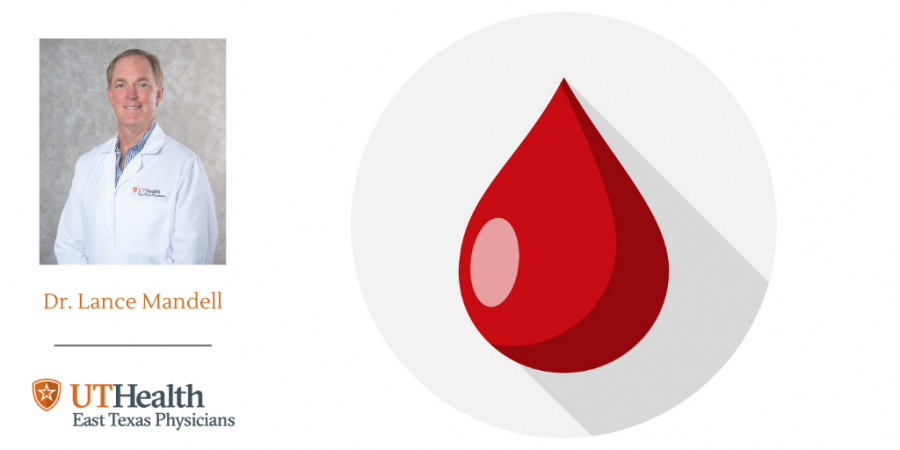
September is Blood Cancer Awareness Month. Blood cancers include leukemias, lymphomas and multiple myeloma. Together these account for approximately 180,000 new cancers each year in the United States. There has been dramatic improvement in the treatment and outcomes for most blood cancers in the past two decades. Many of these cancers are more common as someone ages, but some leukemias and lymphomas are fairly common in children.
Leukemias are cancers of the white blood cells made in the bone marrow. They often present with symptoms related to suppression of normal blood production, such as fatigue from too few red blood cells or unexplained bleeding or bruising from decreased platelet production.
Lymphomas are divided into Hodgkin’s Lymphoma and Non-Hodgkin’s Lymphomas. These are cancers of lymph tissue and often present with persistent enlarged lymph nodes. Lymphomas are among some of the most treatable cancers and Hodgkin’s Lymphoma in particular is considered one of the most curable of all cancers.
Multiple myeloma is a cancer of the plasma cells in the bone marrow that are responsible for making antibodies that help fight infections. It can cause bone lesions and fractures, anemia, high calcium levels and kidney failure. Also, it is much more treatable than it was in the past.
Blood cancers have led the way in new targeted therapies. These are medications that aim for a protein or enzyme that the cancer uses that normal tissues do not use. For example, in 2001 the first “tyrosine kinase inhibitor” (TKI) was approved for use in chronic myeloid leukemia (CML) significantly changing its outlook. Prior to that, the average survival of someone with this disease was three and a half years. Today, survival rates have more than doubled, and more than 90 percent of patients are either cured or live long lives by taking a TKI pill with very few side effects.
What can you do? If you have symptoms that concern you such as fatigue, bleeding or enlarged lymph nodes, ask your doctor to evaluate you. Many blood cancer patients depend upon blood products to survive their illness. If you are able, a very good thing to do is donate blood at your local blood bank. In East Texas, this is Carter Blood Care. You might even consider registering to be a bone marrow or stem cell donor. Many patients benefit from research or assistance from charitable organizations. You could consider donating to organizations such as the Leukemia and Lymphoma Society or the American Cancer Society.
Information provided by Lance Mandell, MD, board-certified hematologist at UT Health East Texas HOPE Cancer Center at North Campus Tyler. For more information, visit UTHealthEastTexas.com.

